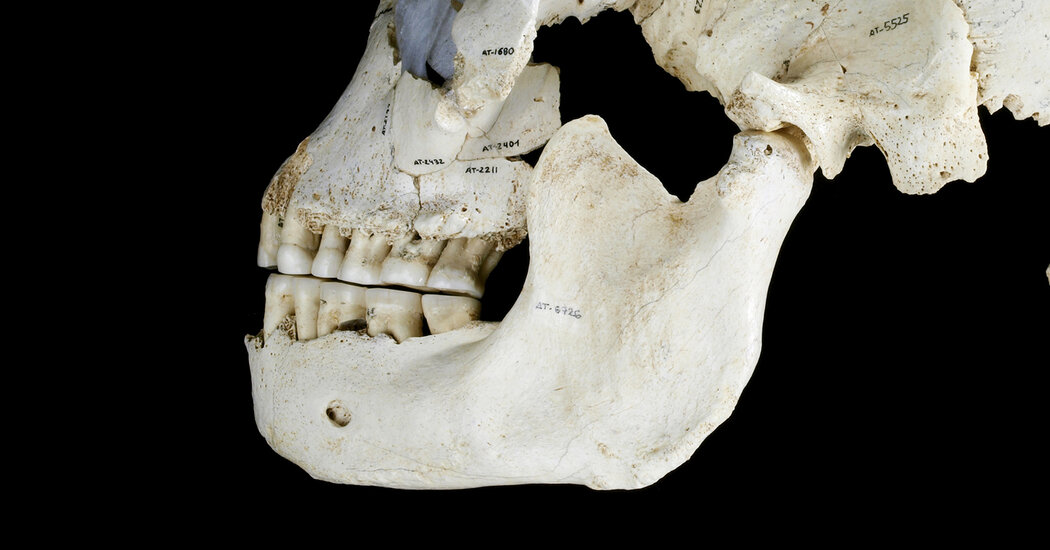Two new studies found that ancient human ancestors carried a surprising diversity of genes for amylase, an enzyme that breaks down starch.
As soon as you put starch in your mouth — whether in the form of a dumpling, a forkful of mashed potatoes or a saltine — you start breaking it down with an enzyme in your saliva.
That enzyme, known as amylase, was critically important for the evolution of our species as we adapted to a changing food supply. Two new studies revealed that our ancestors began carrying more amylase genes in two major waves: the first one several hundred thousand years ago, possibly in response to the invention of fire, and the second after the agricultural revolution 12,000 years ago.
“This combination of adapting to diverse environments and modifying our diets is a core tenet of what makes us human,” said Omer Gokcumen, a geneticist at the University at Buffalo who led one of the studies, which published on Thursday in Science.
As ancient societies developed different diets, the new research suggests, they evolved to have different numbers of amylase genes. Dr. Gokcumen speculated that people today who have fewer amylase genes may be more vulnerable to diseases like diabetes that are fueled by a starch-heavy modern diet. Down the line, the findings could point to potential amylase-based treatments for these diseases.
“This is obviously in the future, but I think our studies are really setting the stage for doing this,” Dr. Gokcumen said.
The first clues to the extraordinary history lurking in our mouths emerged in the 1960s, when scientists discovered that some people made extra amylase in their saliva. But only in the last few years has DNA-sequencing technology become accurate enough to decipher the amylase genes people carry in their cells.
